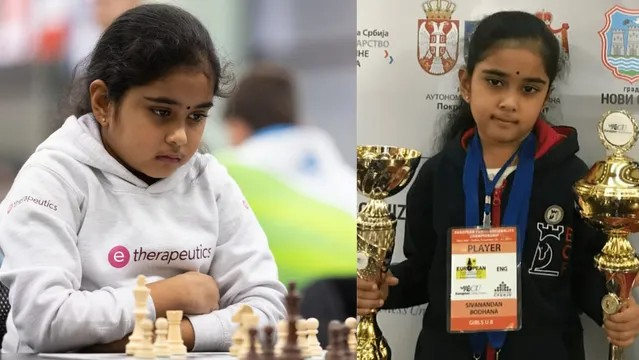

The New Grandmasters of Britain
A remarkable wave of young chess prodigies with Indian heritage is reshaping the competitive landscape of British chess. At the recent British Chess Championships in Liverpool, these players demonstrated a level of dominance that far exceeds their representation in the general population. Securing roughly one-third of all available youth prizes, this small demographic has become the driving force in the nation's junior chess scene, achieving success despite facing significant systemic hurdles that differ greatly from the chess ecosystem in India.
Dominance by the Numbers
The statistics from the national championships paint a clear picture of this emerging trend. Across the five age groups from Under-8 to Under-16, a total of 78 prizes were awarded in classical, rapid, and blitz formats. Of those, an astounding 26 podium finishes went to players of Indian origin. This success wasn't limited to the winners' circle. Participation figures showed a deep pool of talent, with one event, the Under-12 Rapidplay championship, seeing nearly half of its 43 competitors—21 players—hailing from British-Indian families. These figures are particularly striking when considering that British Indians constitute just 3.1 percent of the population in England and Wales, according to the 2021 Census.
Rising Stars on the Big Stage
The phenomenon extends beyond the age-group categories. Some of the UK's most electrifying talents, who also have Indian roots, are already making their mark in open events against seasoned professionals. Ten-year-old Bodhana Sivanandan captured international headlines during the championships by becoming the youngest girl ever to defeat a grandmaster. She is joined by 16-year-old Shreyas Royal, who last year became the youngest British grandmaster in history, and 11-year-old Supratit Banerjee, who defeated two grandmasters in Liverpool. The English Chess Federation (ECF) has already identified this trio as the future face of British chess, recognizing their potential to elevate the nation's standing in the sport.
Success Against the System
This rise is all the more impressive given the structural challenges aspiring players face in the United Kingdom. Unlike in India, where specialized schools like the famed Velammal School nurture talents like World Champion Gukesh D with scholarships and academic flexibility, the British system presents a tougher path. There is little financial support for the sport, and the intense academic pressure of GCSE and A-level exams forces many promising players to divide their focus. Schools require high attendance and do not typically offer the kind of accommodations needed for full-time chess training and tournament travel. Bodhana’s father, Sivanandan, noted that while he values education, the UK system makes it difficult for a child to pursue both academics and chess at an elite level simultaneously.
The Power of Inspiration
The reasons behind this chess bloom are multifaceted. Tim Wall, the ECF’s Director of Junior Chess Development, points to the "Anand effect," crediting Indian legend Viswanathan Anand and now Gukesh for popularizing the game among the diaspora. This inspiration from the homeland is now being amplified by local success. The achievements of players like Royal and Bodhana create a powerful feedback loop, motivating younger children within their own communities to take up the game and aim for similar heights. As this generation of British-Indian talent continues to mature, they are creating a new, internal source of inspiration that promises to fuel the growth of chess in Britain for years to come.
The Bottom Line